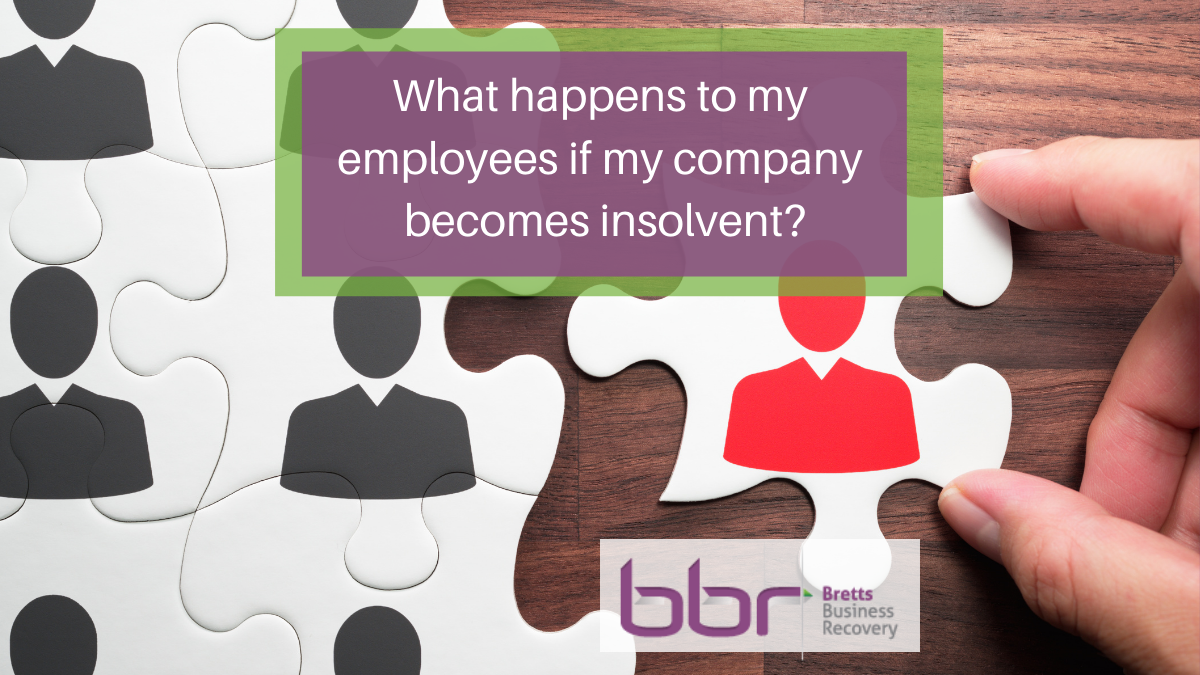What happens to my employees if my business fails?

Despite business saving measures and support packages, it could be that, now that the support has come to an end, you need to face the reality of business insolvency. As an employer, it’s a very difficult time when your employees are looking to you for support and answers, especially if there is no longer a viable job for them. Here are some of the most common questions and answers:
- How does insolvency affect my employees?
- What statutory compensation can they get if they lose their job?
- Can I ask staff to continue working?
- What happens to staff if I transfer my business to new owners?
- What other payments might staff be entitled to?
- Can I claim redundancy as a Director of the business?
If you are struggling to pay debts, you may need to consider insolvency or recovery processes. If your business is a Limited Company or a limited liability partnership, one of the following occurs:
- administration
- liquidation (Compulsory or CVL)
- receivership
- company voluntary arrangement (CVA)
If you are self-employed insolvency may be managed via:
- bankruptcy
- individual voluntary arrangement (IVA)
How does insolvency affect your employees? The rights of your employees will very much depend on the insolvency process at play. You could:
- make your employees redundant
- ask them to continue working
- transfer them to a new employer (if the business is sold)
An ‘insolvency practitioner’ or ‘official receiver’ will manage the process. They will tell you how your employees will be affected and what to do next. If you make your staff redundant as part of a formal insolvency process they will be entitled to claim contractual entitlements from the Company. Most likely, your Company will not be in a position to pay any sums out, in which case employees can claim for all statutory entitlements from the Redundancy Payments Service, which the appointed insolvency practitioner will facilitate. Depending on the situation of the individual, they may be eligible to apply for:
- a redundancy payment (if they have been employed consistently for 2 years or more) The amount will depend on how long they have been employed, their contract terms and their age
- holiday pay – up to six weeks maximum in the 12 months before insolvency, that they did not take (holiday pay accrued) of for any days that they took and have not been paid for (holiday pay taken).Arrears of Pay and Holiday pay are both capped at £544 per week (financial year 21/22)
- outstanding payments like unpaid wages (up to eight weeks), overtime, bonuses and commission.
- money they would have earned working a notice period (‘statutory notice pay’ – up to 12 weeks)
Any shortfall between the contractual and statutory entitlements will rank for payment in the insolvency proceedings.
If you enter a formal insolvency process and you owe your staff money, they can visit the ‘Claim for redundancy and monies owed’ service on GOV.UK. If you stop trading, are struck off (dissolved) and not classed as insolvent, your staff are not entitled to claim unpaid monies and may choose to bring an employment tribunal in order to reclaim money owed.
If you ask employees to continue working they’ll still be eligible to claim redundancy pay and other money they’re owed (that accrued before the insolvency) if you make them redundant at a later date. If your business is taken over by new owners your employees can be transferred to the new owners, and TUPE Regulations will apply- the contractual obligations you have agreed with your employees will also remain.
Redundancy pay for Directors of Insolvent companies
As the director of a limited company, you may also be an employee of the business and therefore entitled to redundancy pay. Again the way you close your business will affect whether this is possible. Read here for our guide on redundancy payments for directors.
Contact Us